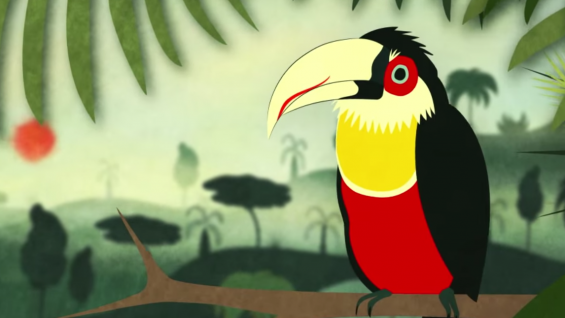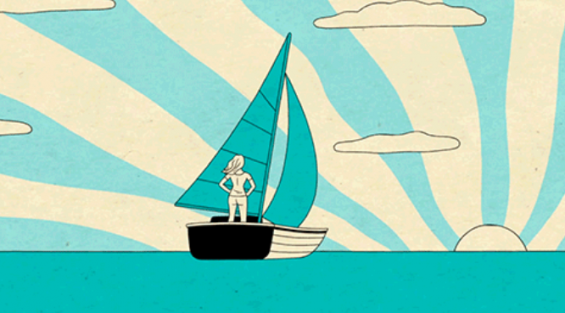
8 ways to fight COVID-19— and improve the world— from home
Staying home is the best way to fight COVID-19, but there are plenty of projects you can get involved in from your living room if you want to do more!
For many of us, it’s difficult to feel like we’re watching from the sidelines while healthcare workers, grocery store clerks, delivery drivers, and food producers work hard to keep us safe and healthy during COVID-19.
While staying at home is the greatest contribution any of us can make, there are a lot of projects you can actively get involved in without ever leaving your home.
These vary from citizen science projects where you analyze data collected by scientists, to participating in studies that will help public health practitioners understand the spread and impact of COVID-19. Large scale studies like these are vitally important during a global pandemic, and their results could save lives in the future.
Here are 8 projects you can get involved in:
COVID-19 Citizen Science
(University of California San Francisco)
Researchers at UCSF have created an app-based study that invites participants to document their physical health and symptoms.
You can take part anywhere in the world, whether or not you have COVID-19. It requires you to download the Eureka app on your smartphone and fill in an initial 10-15 minute survey, with follow ups that take 5-15 minutes per week.
The team hopes to enroll 1 million people worldwide in the study, with the aim of identifying factors that increase or decrease the risk of infection, and to better understand why the spread has varied between individuals and regions.
Coping with the COVID-19 Outbreak
(University of British Columbia)
The current pandemic is about more than just physical illness. Psychologists at UBC in Canada want to know how it is affecting people’s thoughts, feelings, and behaviors.
Even if neither you or anyone close to you contracts COVID-19, the impacts of physical distancing, working from home, online learning, and the closure of schools and businesses are affecting your daily life.
This study, open to anyone in the world, involves filling in an initial 15 – 20 minute questionnaire, with the option for participants based in North America to sign up for a week of short, daily follow ups.
Local COVID-19 Projects
Around the world there are also initiatives at local and national levels dedicated to better understanding the spread and impact of COVID-19 and the EU-Citizen.Science project have compiled a list, which is regularly updated.
City Nature Challenge
Even though it’s not possible to go far afield at the moment, the City Nature Challenge is a great way to get involved in biodiversity work in your own neighborhood or garden!
Modified this year with COVID-19 considerations, the challenge invites you to photograph and document wildlife in your city. This can be anything from plants to animals or insects.
Visit the City Nature Challenge website to find out how you can participate, view the 2020 results from all over the world, and learn more about the impact the project has had in a talk by author Mary Ellen Hannibal.
Planet Hunters
Join the search for planets in other solar systems!
Using data from NASA’s TESS mission, you can analyze the brightness of faraway stars to see whether there are planets orbiting them. Citizen scientists have already helped to find dozens of new planets for classification.
The project also found a star with a very mysterious light pattern. Tabby’s star was named after project founder Tabetha Boyajian, who explains in her TED Talk just why it was so unusual.
SETI @ Home
If you’re busy but still want to take part in something interesting, UC Berkeley’s Search for Extraterrestrial Intelligence project runs on your computer when you’re not using it – a bit like a screensaver – and processes radio telescope data to search for unusual signals.
Astronomer Seth Shostak explains more about the project in his TED Talk: ET is (probably) out there – get ready.
Zooniverse
One of the largest citizen science platforms, Zooniverse has dozens of projects you can get involved in. Here are a few that are looking for extra support:
-
Bash the Bug: help fight antibiotic resistance and tuberculosis
-
Anti-Slavery Manuscripts: transcribe handwritten correspondence between 19th century anti-slavery activists into text that can more easily be read and studied
-
Rainfall Rescue: help scientists understand historical rainfall variations
US Census
If you are based in the United States, you can fill in your census online.
Census data is used to allocate federal funding for your local community, including infrastructure like highways and essential services like hospitals, fire departments, and disaster response.
It also impacts provision for schools, wildlife restoration, and other social programs. Filling it in is a great way to contribute to your community!
ABOUT THE AUTHOR
Mary Halton is Assistant Ideas Editor at TED, and a science journalist based in the Pacific Northwest.




